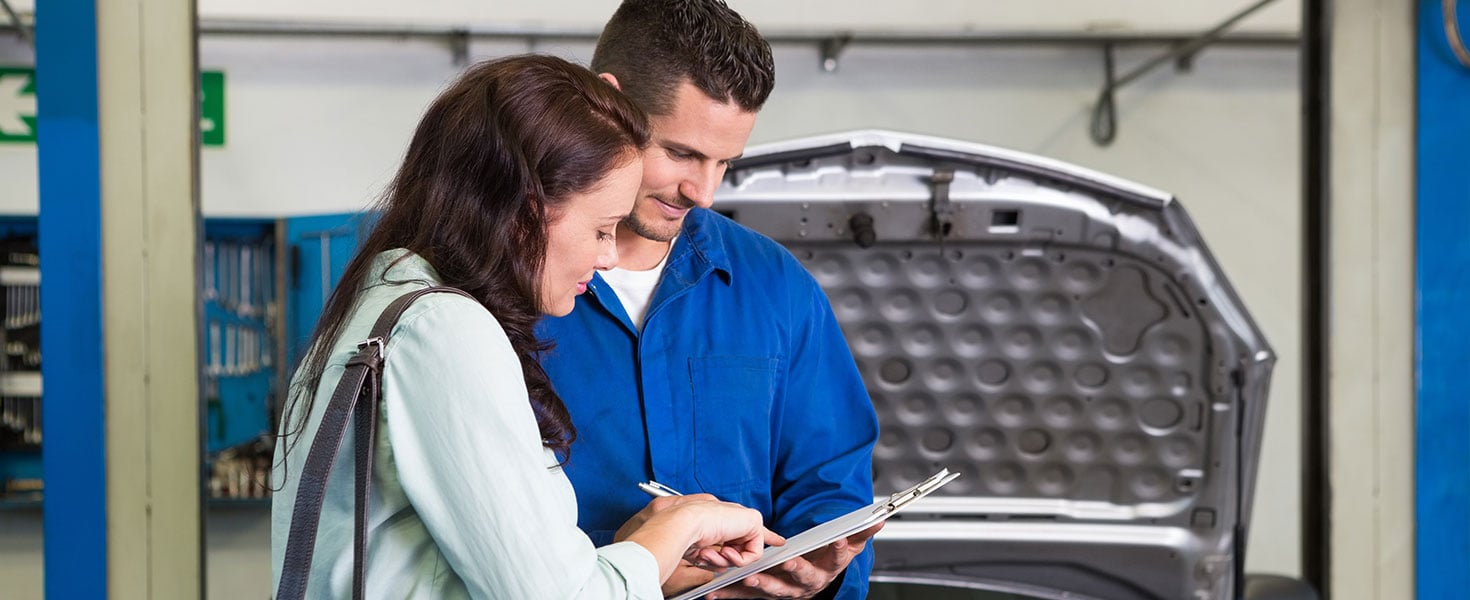3 Tips to Avoid Overpaying for Auto Repairs
How to navigate vehicle repair and maintenance costs, find a reliable mechanic, and make informed decisions about your car care


Maintenance and auto repair costs are a necessary expense that help keep our vehicles running smoothly. Since most drivers lack the experience of a certified mechanic, we rely on trained technicians to tell us what’s wrong with our ride, provide regular car maintenance, and flag issues before they become pricey repairs. Here’s how to keep your car in tip-top shape and make the most informed decisions when it comes to your wallet.

Do your car care homework
Even if you are not a mechanically minded vehicle owner, if you have had any experience owning and operating vehicles, you know what certain symptoms mean. Squeaky, streaky wipers across your windshield signal that blades need to be replaced. Squealing when you apply the brakes could translate to new brake pads. And, of course, a gas pump light says it is time to refill your tank. These may be simple examples but working to develop more comprehensive knowledge of your vehicle and how parts wear can serve you well when it comes time to talk to a mechanic about their recommendations.
Do not be afraid to crack open the owner's manual and read it. Not only can this help you become more familiar with the function of different components on your vehicle, but it will also provide detailed information on maintenance intervals so that you can budget for more expensive repairs, such as timing belts or new tires.
Get in the habit of keeping records on your vehicle. Designate a file folder or safe spot to place your repair and maintenance invoices so that you can reference them in the future. This way, when your mechanic recommends an air cabin filter replacement, for example, you can go back to your records and see exactly how long it has been since you last replaced your filter.
The more knowledge you can arm yourself with before consulting a mechanic, the better you will feel about authorizing a repair.

Find a reliable mechanic
Approach finding a mechanic the same way you would approach researching any major purchase you may make. Do your homework by consulting online reviews and the Better Business Bureau. Ask your friends, neighbors, and family members for recommendations. Look for the (ASE) certification logo displayed in the repair shop. ASE-certified mechanics have passed a rigorous test from the National Institute for Automotive Service Excellence indicating that the mechanic has the expertise to provide quality service.
You can also pick up the phone and call service centers in your area to compare their offerings, get a feel for how they interact with customers, and gauge their experience level with the make and model of your vehicle. If you are driving a newer car, don’t hesitate to ask a shop if they will honor existing warranties. Ask how they charge for labor, too. Does the shop charge a flat rate for repair (that is, they have a standard charge that corresponds to the repair), or do they charge a variable rate (meaning that they charge for labor in real time using the actual time it takes a technician to perform the maintenance)?
Also consider getting a second opinion, particularly when it comes to more expensive repairs.
Understand your rights—and how your car works
While laws regarding repairs and estimates can vary from state to state, most repair shops are required to have customer consent before charging for any work that exceeds the original estimate. To be safe, always make it clear that you want to sign off on any repair or maintenance work before it's done. Any quality shop will happily comply and keep you in the loop throughout the maintenance and repair process, even if state law does not require them to do so.
Also, taking steps to better understand your vehicle’s inner workings, including how parts wear and when to replace them, can help you become a more confident consumer.
Putting these tips into practice, you can visit the repair shop with a sense of empowerment that protects your vehicle—both performance-wise and wallet-wise.
